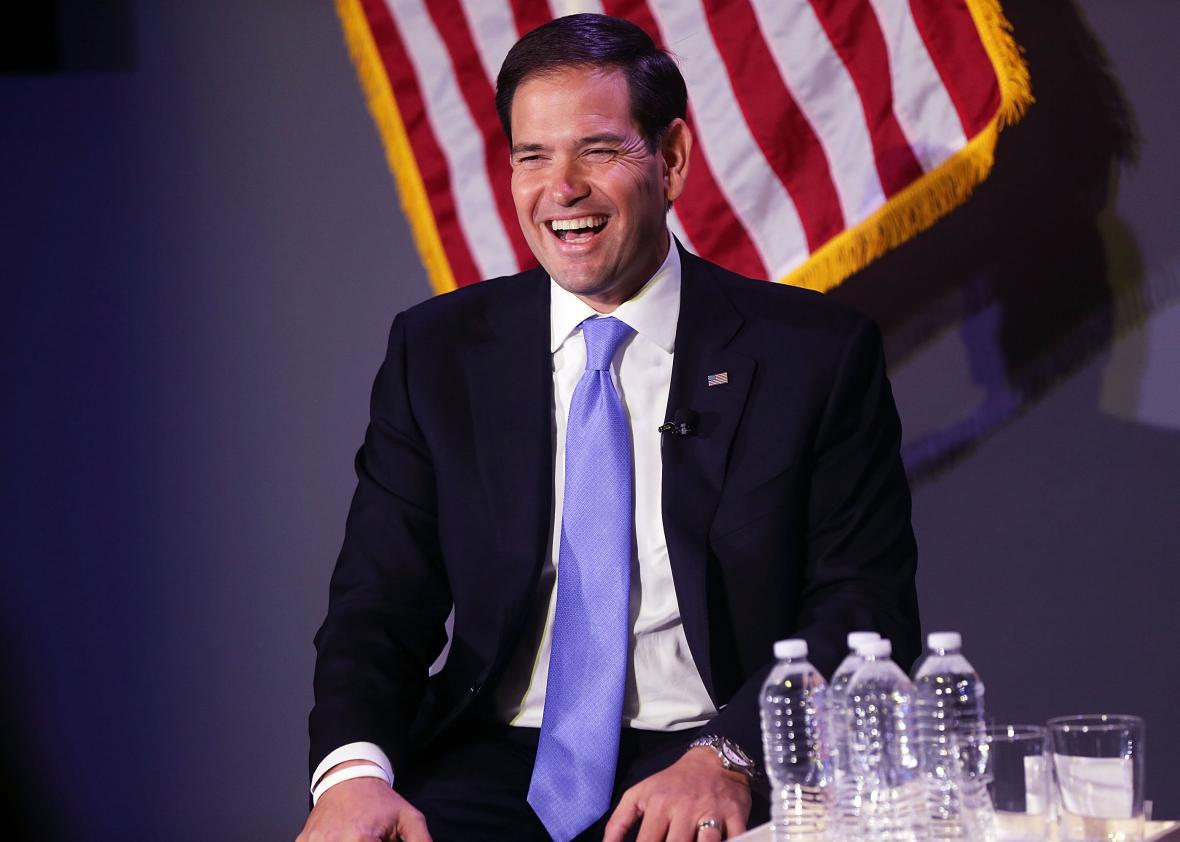Marco Rubio is having a moment for some reason. Sure, the Florida senator and Republican presidential hopeful is running a distant third and has only picked up a single point in the polls since October. But an influential pocket of the punditry decided long ago that Rubio is the invisible front-runner, the candidate who will surge when Donald Trump and Ted Cruz do whatever Alien and Predator did to each other at the end of Alien vs. Predator. Since Rubio has been anointed the establishment candidate, able to bridge the rabid base and the moderate moneymen, it is probably worth noting that he is strikingly anti-gay—much more so than Trump, and at least as much as Cruz.
The story of Rubio’s homophobic misdeeds reaches back to 2006. Florida’s foster care system was in crisis. Faced with too many children and too few foster parents, the Department of Children and Family Services allowed a contractor to force abused and neglected children to sleep on the floor of a conference room at a DCF building for several days. These children had suffered severe physical harm and psychological trauma before entering the foster system—and DCF made them live and sleep in a conference room together without beds, bedding, supervision, medical care, sanitary bathrooms, or adequate food. (The children, represented by an attorney, successfully sued DCF shortly thereafter.)
Obviously, DCF’s actions were inexcusable: The agency essentially permitted children to be imprisoned in inhumane conditions. (I’ve visited the building where the children were kept. It is not dissimilar to a minimum-security prison.) But the scandal raised a broader issue: Florida simply didn’t have enough foster parents to take in all these abused and abandoned children. What to do? One option frequently floated was to expand the pool of potential fosterers and adopters by allowing same-sex couples to take in children. The Florida legislature banned gay adoption in 1977, but times had changed, and the pressure on the foster care system had grown untenable. Would the legislature reconsider the ban?
Rubio, who was then serving as the Florida House majority leader, instantly and emphatically quashed the idea.
“Some of these kids are the most disadvantaged in the state,” he said. “They shouldn’t be forced to be part of a social experiment.” Rubio, in other words, would rather see the children languish in the flawed foster care system than allow same-sex couples to take them in. The ban remained in effect until 2010, when a court finally struck it down.
Since then, Rubio has declined to walk back his “social experiment” remarks and continues to promote an anti-gay agenda on the campaign trail. (Most recently, he suggested he would appoint Supreme Court justices who would overturn Obergefell v. Hodges.) Somehow he has attracted pro-gay billionaire Paul Singer as a donor, but his rhetoric remains fiercely anti-gay. Some moderates may be tempted to dismiss Rubio’s stance as a distasteful party-pleasing necessity. But the candidate’s history suggests that he is fully committed to harming gay people through the law—and doesn’t mind children being collateral damage.
